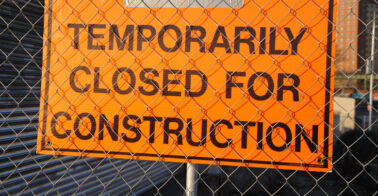Ontario's New Construction Act Brings Contract Surety Changes


Ontario’s Bill 142, the province’s new Construction Act, is the largest set of new construction rules the province has seen in 35 years. With the first part of the Act in effect in July 2018, we wanted to take a look at how the bill impacts the contract surety world.
With new rules requiring more promptness of payment, flow funds should work their way from project owners down to sub-trades and suppliers at a much faster pace, leading to quicker average cash flow across the industry as well as fewer hung receivables. The new Prompt Payment rules require an owner to pay a contractor within 28 days of receiving a “proper invoice,” which describes the services or materials supplied along with the period during which they were supplied and the authority under which they were supplied, unless the owner delivers a notice of non-payment in the prescribed form within 14 days. Past rules had a 90 day or longer requirement. Contractors who receive full payment from an owner then have seven days after receiving payment to to pay a subcontractor. If the owner does not pay within the prescribed period, the contractor must pay the subcontractor from their own funds within 35 days or, if unable, deliver a notice of nonpayment explaining the reason for the delay.
New adjudication rules are also now in place for disputes that arise between parties, with the rules aimed at resolving disputes more quickly and clearly. The new process is meant to provide an easier path to resolution on the valuation of services or materials under a contract, required payment under a contract, non-payment of a holdback, and any other matters that parties agree to adjudication on or that are prescribed by regulation. Determinations by adjudicators are binding.
Sureties are also impacted greatly by the new Construction Act. New rules are requiring them to more quickly and responsively deal with claims in relation to performance, material payment, and labor bonds. The bill requires a minimum of 50 percent performance and 50 percent labor and material bonds from contractors performing work under public contracts signed after July 1, 2018 and valued at $500,000 or more. In terms of claims themselves, sureties will have four business days to address and request info on performance bond claims and must provide their position regarding the claim within 20 business days of the claim. For labor and material bond claims, sureties will have to acknowledge and request info on the claim within three business days and then provide its written notice within 10 business days of receiving information back, or within 25 business days of the initial claim. For claims regarding payment of labor and material payment bonds, the surety will have ten days after providing its written position to pay the claim.
All of these rules are overall aimed at creating a faster paced cash flow within the industry and to keep projects and payments moving forward as much as possible, while also creating a fair marketplace for all parties. They’ll help the industry address concerns and claims before they reach the level of relationship ruining catastrophe while enabling those affected to more quickly recognize concerns during the next project. Sureties won’t be able to delay claims either, making the whole experience more responsive, clean, and quick. Learn more about Ontario’s Construction Act.
Colonial offers the direct and digital way to obtain bid and performance bonds. We are the insurance company — which means no agent, no broker, and no middleman. We make it easy to obtain your bond. The steps are easy — get a quote online, fill out your information, satisfy underwriting requirements, and enter your payment method. It’s that simple!


